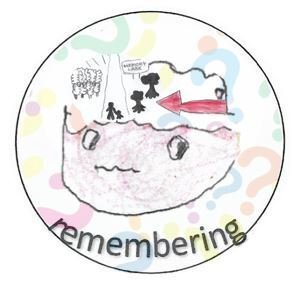Metacognition at Hollybush Primary School
What is metacognition?
Meatcognition is the ability to monitor, direct and review learning. In a nutshell, it can be defined as 'Thinking about Thinking' but it is not just limited to thinking and planning tasks. Metacognition also encompasses self-regulation and growth mindset. It is not something that is learnt separately from subject knowledge. To improve metacognition, pupils need to have subject knowledge to build upon.
Without cognition there is no metacognition.
Studies involving primary school children have shown the potential impact of using metacognitive strategies is around 7 months. Some of the findings of this research from the EEF can be seen in the poster below. The potential impact for disadvantaged pupils can be even higher. At Hollybush we aim to teach the children to think about how and why they learn as this supports them in understanding their own learning journey.
Identifying features
- Spotting patterns
- Proofreading errors
- Building on prior learning
- Remembering which strategies to use
- Remembering phonics sounds
Choosing a strategy.
- Choosing the right tool for the task.
- Choosing good vocabulary
- Linking different lessons together
- Making inferences
- Linking prior learning
- Problem solving
- Tring different methods
- Using a growth mindset.
Making predictions
- Thinking out loud
- Considering possibilities










